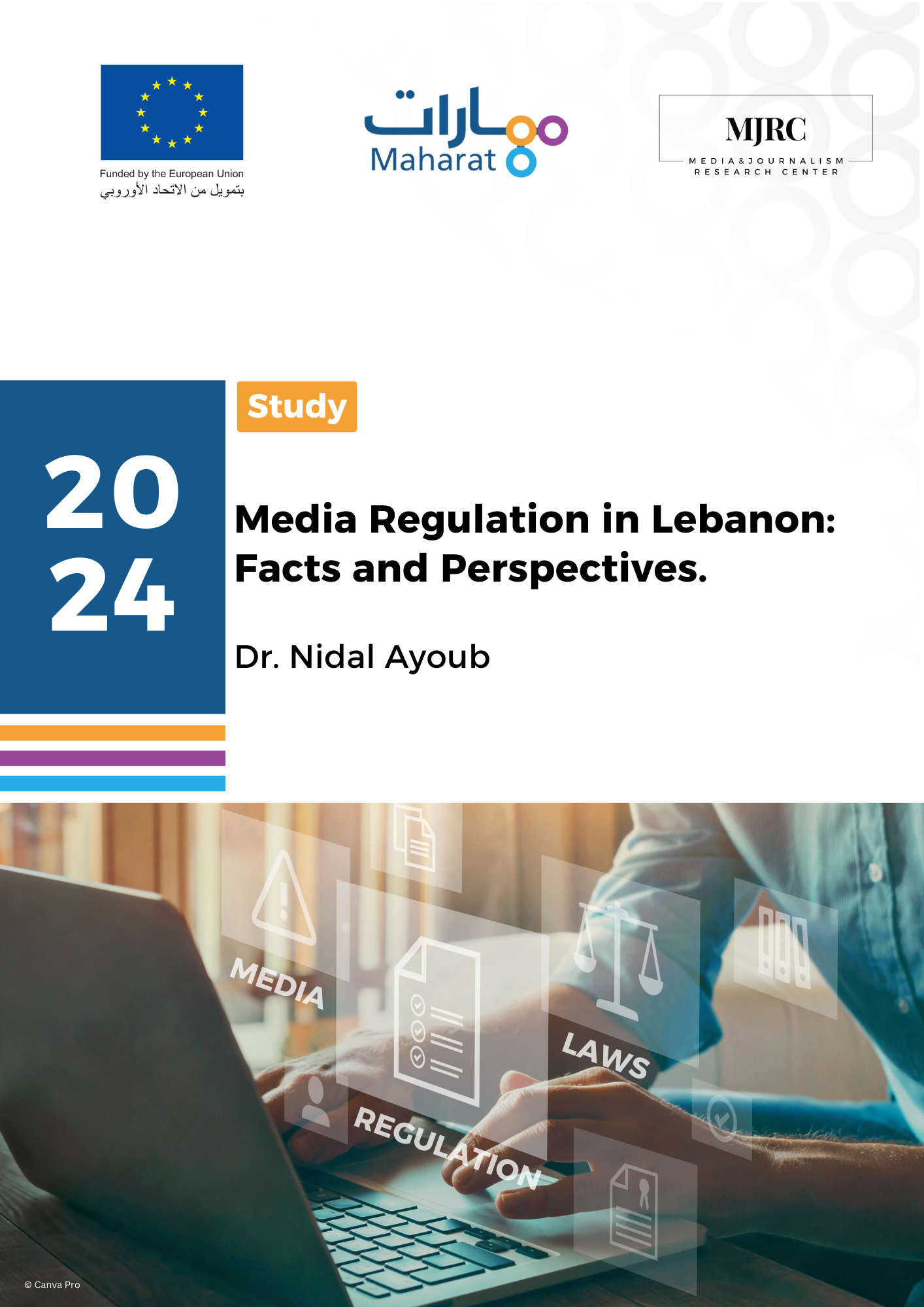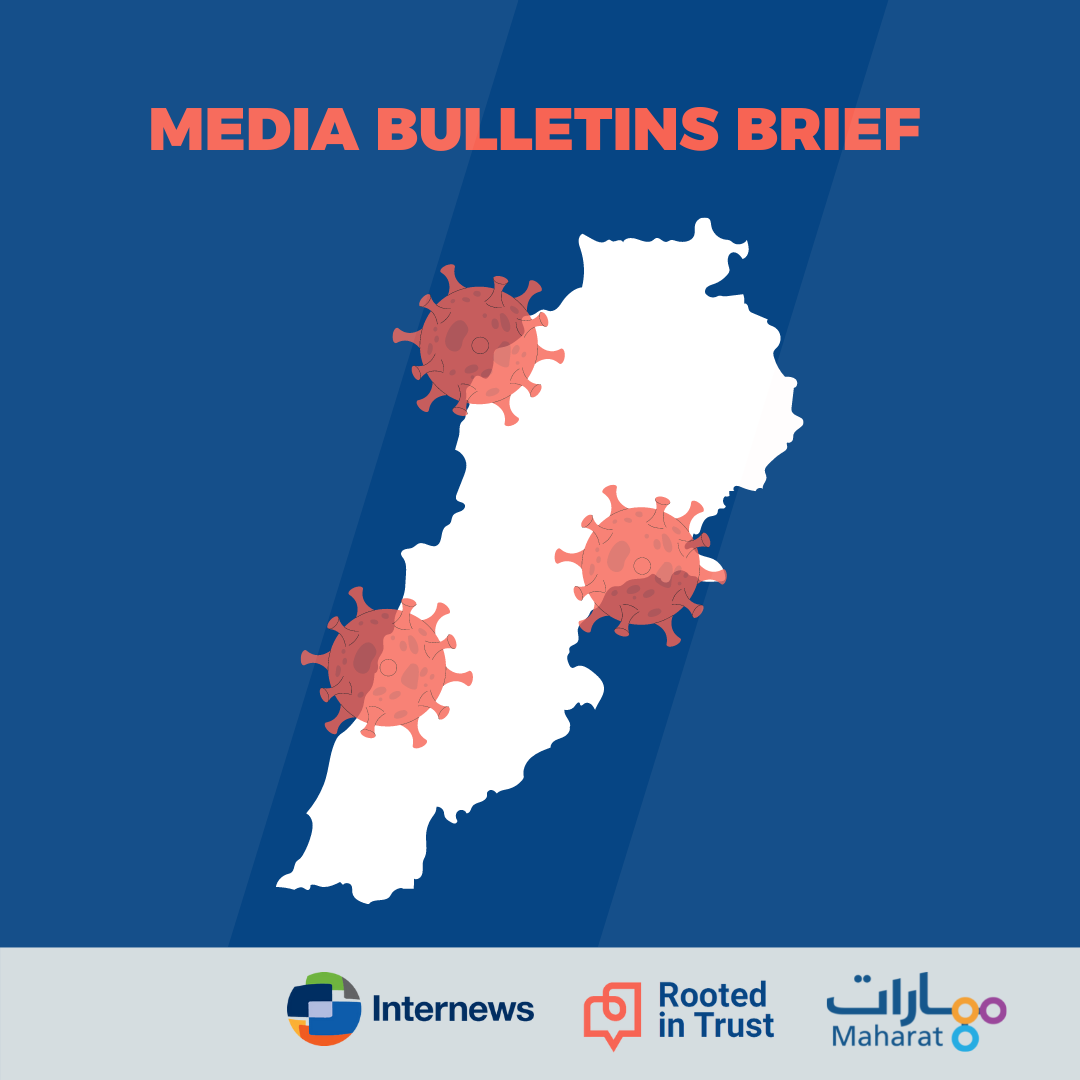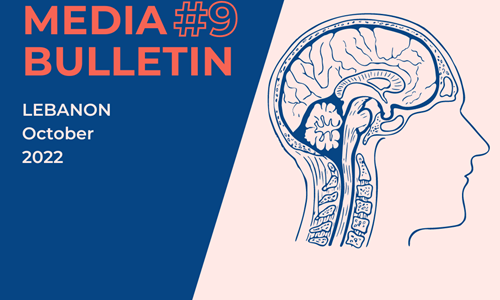
Governance of the media sector: Which regulation (Regulation, Co-regulation, or Self-regulation)
"Media Regulation in Lebanon. Facts and Perspectives" a study by Dr. Nidale Ayoub, provides an overview of the regulatory framework of media in Lebanon. It highlights the lack of a comprehensive legal framework regulating Lebanese media, with existing regulatory structures being heavily fragmented.
The study highlights that existing laws intended to govern media are outdated, often misinterpreted and manipulated, particularly by security apparatuses, regulatory bodies, and the judiciary, serving political and partisan interests. As for the digital media, the study finds a lack of enforceable regulation, resulting in a chaotic landscape for online platforms.
The study concludes that regulating media in Lebanon differs significantly from global standards. It emphasizes the need not only for a new comprehensive legal framework but also for establishing a culture of public and professional ethics. Political interests governing the media sector cannot be addressed solely through laws but require well-defined values and broadly agreed-upon standards.
To access Dr. Nidale Ayoub's study:
Media Regulation in Lebanon. Facts and Perspectives
"EU media regulation, co-regulation and self-regulation in the digital age", a study by Dr. Minna Aslama Horowitz, explores the EU policies regarding traditional media in the digital context, including legal regulation, co-regulation, and self-regulation in member states. The paper focuses on fundamental principles and specific regulations, such as guidelines for audiovisual media services and competition regulation in public broadcasting bodies. It discusses key concepts and best practices for co. and self-governance, providing various examples, including child protection and combating media misinformation.
To access Dr. Minna Aslama’s study:
The findings of both studies conducted by Dr. Dr. Nidal Ayoub and Dr. Minna Aslama Horowitz, as well as the conclusions of a seminar organized by Maharat on January 17, concerning governance of the media sector and proposes optimal ways to regulate it, were relied upon to raise concerns about ensuring the independence of the media regulatory authority and the extent of powers it should have under media law, in line with the fundamental freedom of media that must be safeguarded, and prepare a standard-setting document summarizing best practices related to updating the media laws.
The standard-setting document includes recommendations to authorities to reconsider media laws and align them with international standards of freedom of opinion and expression, adapting to digital advancements. It emphasizes ensuring universal access to information, media, and platforms, alongside regulating digital media. Recommendations also focus on ensuring the independence of the regulatory authority from governmental and commercial interests:
Concerning its formation:
- Using a participatory mechanism involving associations, syndicates, and civil society organizations.
- Ensuring its administrative and financial independence through legal personality and immunity from guardianship.
Concerning its powers:
- Avoiding conflicts of jurisdiction and interests between the Ministry of Information and related bodies.
- Delimiting the authority's powers carefully, in line with the Venice Commission's observations, specifically focusing on licensing visual and auditory media without monopolizing or affecting public space.
The standard-setting document also addresses the media sector, focusing on citizen needs and rights, especially communication and digital rights, developing the media market, creating job opportunities, and financial independence. It advocates for self-regulation within media institutions to prioritize internal accountability over external legal and security apparatus scrutiny of journalists.
Internationally, it calls for sharing media literacy basics, educational materials, and joint expert teams to develop AI and new innovations promoting citizen participation and digital debates, enabling democratic public communication and media pluralism in the digital age.
These studies are part of the media reform studies series under the Academic Exchange Program between Maharat Foundation and Media and Journalism Research Center, as part of the "Media Reform to Enhance Freedom of Expression in Lebanon" project in collaboration with Legal Agenda and Media and Journalism Research Center, with the support of the European Union.





